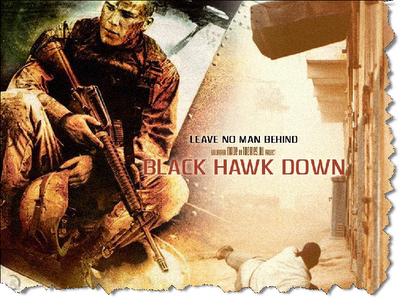The Hollywood Vote
 Townhall.com recently ran a piece in which Rusty Shackleford argued that Jon Stewart should be crowned the Democratic majority Kingmaker, much akin to Rush Limbaugh's role in the '92 Republican victory in Congress.
Townhall.com recently ran a piece in which Rusty Shackleford argued that Jon Stewart should be crowned the Democratic majority Kingmaker, much akin to Rush Limbaugh's role in the '92 Republican victory in Congress.
The article made a number of very good points, noting that Stewart's brand of comedy endears him to his viewers, and spurs them to vote along with his views. This, Shackleford notes, has also resulted in greater voter turnout, particularly among younger voters who watch The Daily Show.
While I agree that Stewart's Daily Show has undoubtedly had an influence on the youth vote, I believe there are other avenues that should be explored when considering the increase in voter turnout amont the young (and old), especially during this mid-term election. Particularly, I would argue that Hollywood's political films have become more pervasive.
I don't mean to sit here and cast judgement in the way Shackleford did with regard to the Daily Show, but rather to highlight some films of note that have likely had a political after-effect.
First, the Michael Moore's of the world held their sway over audiences, particularly the far [anti-war] left. That much is clear. Then there is HBO's K Street, a George Clooney project featuring many prominent Democrats. Most recently, Al Gore has brought us "An Inconvenient Truth," a documentary that is clearly intended to galvanize the environmental left, and perhaps convert some middle of the road Republicans concerned about global warming and a lack of government initiative to deal with it.
But aside from these documentaries, Hollywood has recently exploded with an endless number of serious, smarter than average films that each take their own view of politics at home and abroad.
Examples include: Syriana, Goodnight and Good Luck, The Constant Gardner, Hotel Rwanda, Bobby, The Last King of Scotland, United 93, Black Hawk Down, Babel, The Manchurian Candidate, V for Vendetta, Borat, World Trade Center, Traffic, The Thin Red Line, Munich, Jarhead.
Television has also thrown its hat in the ring with shows like 24, The West Wing, Commander in Chief and The Unit.
Of course, Hollywood has always had an appetite for Drama, particularly with a strong, clear social message of right and wrong. The Tom Clancy novels turned films come to mind, such as Clear and Present Danger, which dealt with the limits of Presidential power. The original (now remade) Manchurian Candidate detailed an apparently limitless degree of political manipulation and ambition. Mr. Smith goes to Washington illustrated the clash of the idealist outsider up against a corrupt political system entrenched in money, special interests and patronage.
But recent Hollywood political flicks are different, not just in their increasing prominence. The trend seems to be an increasingly complex, narrow and even ambiguous film, that still entertains and captivates. One example, Syriana, leaves the viewer confused. On one hand, the left leaning film showed the United States government backing a puppet of the moneyed interests, even killing to reach this goal. Yet, the film was not afraid to portray terrorists, hitmen and ideological mullahs as ultra-violent threats that needed to be dealt with. Furthermore, the exchange between Matt Damon and the upstart Prince strongly criticized Arab regimes, along with Western intervention. Overall, Syriana displayed the results of politics trumping reality, particularly when a field agent who is in the know, gets overruled by policy makers in Washington. Perhaps the film bit off more than it could chew, but it did stylistically portray American struggles in the Middle East in a medium that the average Western audience could reasonably digest.
In Black Hawk Down, Ridley Scott achieves something unique for Hollywood. Although his poetic montages, with children running through the streets laid it on a bit thick, the film was anything but typical of Hollywood. First and foremost, Black Hawk Down conveyed a brutal, realistic portrayal of street warfare in an impoverished third world country, with little in the way of plot or political commentary to get in the way of the reality on the ground. The movie focused on the troops and their job defending the United States abroad in a hostile country. Too often, war/political films dwell upon the policy makers; Presidents and Generals. In Black Hawk Down, the soldiers were the stars. The movie's mood and intentions are summed up well in the final minutes, when Eric Bana's Delta Force character (Sfc Norm Hooten) prepares to go back to rescue his fallen comrade:
Hoot (Bana) - There's still men out there. Goddam. When I go home people ask me, they say "Hey Hoot, why do you do it man? Why? You some kind of war junkie? I won't say a goddam word. Why? They won't understand. They won't understand why we do it. They won't understand, it's about the men next to you. And that's it. That's all it is. Hey don't even think about it, all right? I'm better on my own. Hey we started a whole new week. It's Monday.








No comments:
Post a Comment